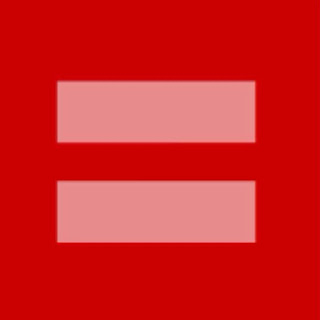We belong in a bundle of life
“Ubuntu is very difficult to render into a western language.
It speaks of the very essence of being human. When we want to give high praise
to someone we say, 'Yu, u nobuntu'; 'Hey so-and-so has ubuntu.' then you are
generous, you are hospitable, you are friendly and caring and compassionate.
You share what you have. It is to say, 'my humanity is caught up, is
inextricably bound up, in yours.' we belong in a bundle of life. We say, “A
person is a person through other persons.'"
Never has this quote from Desmond
Tutu seemed so relevant than it does this week as the Supreme Court of the
United States takes up discussion and arguments over two cases that directly
relate to marriage equality. This is a topic so mired in stigma and profound
conviction (on both sides) that it is terribly difficult to have productive
discussions about it across the plumb line of ideological separation. But the
thing that brings people together more often than not in this debate is the
personal component.
In Sunday school we have been
discussing the Civil Rights movement in Birmingham during the 1960s. Having
just screened Mighty Times: The Children’s March from Teaching Tolerance
and HBO, our conversation in Sunday school moved to the comparisons between the
Civil Rights movement and the gay rights movement. While may opined that there
were many similarities, others of us (me included) admitted to having
difficulty fully finding the two movements congruous. To be sure, many of the
same principles are present: equal rights for a specific group, a struggle to
change public opinion, the changing views of the presidential administration,
and pushes for legislation.
However, someone in our class said
something that, at the time, I found myself disagreeing with. He made the
assertion that, unlike the Civil Rights movement of the 1960s, the push for
LGBT equality is far more personal than corporate. Having thought over this
more, I find myself agreeing to a certain degree. In almost every case, even
the more public expressions of support, the change in consensus over LGBT
equality has happened one person at a time. Vice President Biden’s mind began
to change because of Will & Grace. President Obama’s because of his
daughters’ words about their friends. Senator Rob Portman’s change came through
many conversations with his gay son. These are just three big-name examples,
but just about anyone I have spoken to who has claimed a shift in their own
views on LGBT equality has admitted the change came about through interaction
with someone they know who is gay.
Even churches that have made the
decision to become welcoming and affirming of LGBT persons more often than not
have made the change because of specific people in their congregations whom
they love. Yes, change on this issue comes with struggle and, often, with some
heartache. No real change of any kind comes without those things. However, more
churches are beginning to open their doors to the LGBT community with an
attitude of welcoming and acceptance. Gay Christians are becoming rarer as the
stigma surrounding homosexuality becomes weaker, and homosexuals are not
required to segment themselves within their Christian fellowships by their
orientation. They no longer have to use their sexual orientation as an
adjective to describe their Christianity. As churches focus more on being
caring communities of equality and grace, sexual orientation and gender matter
less, while relationships and ministry matter more.
This is why this week is so
important. For the first time, the body that interprets the law in our country
is looking at a very personal topic and providing a very public response. The
decisions that stem from arguments this week will be landmark and could pave
the way for equality in a way that hasn’t been seen since the 1960s. Repairing
the law may help lead the way for more people to have the courage to come out
of their own closets of hidden support. It may help more churches find the
strength to face this issue with compassion and grace.
After all, we all belong in a
bundle of life. We exist, encounter life through other people, and they through
us. The tide of this debate will continue to turn no matter the outcome of the Supreme
Court decisions. However, we will not stop pushing for equal rights for
everyone, and I will not stop reminding us that it was Jesus who told us to
love our neighbors as ourselves. It is that simple commandment that reminds us we
are all already equal in the eyes of God. So let us strive to find ourselves
equal in the eyes of one another.
Amen.

Comments
Post a Comment